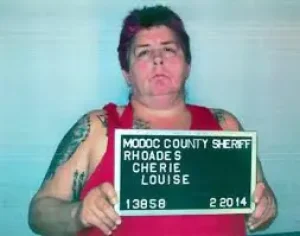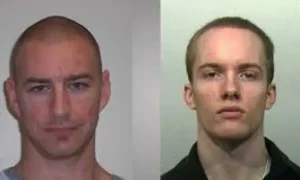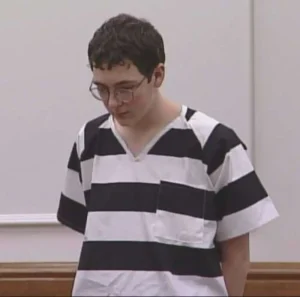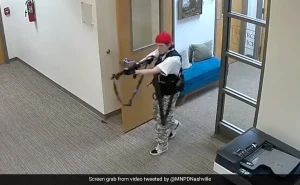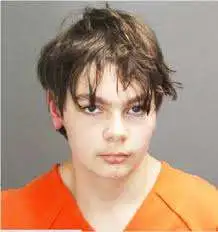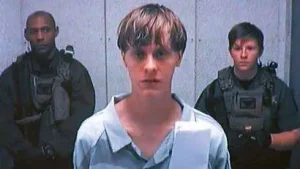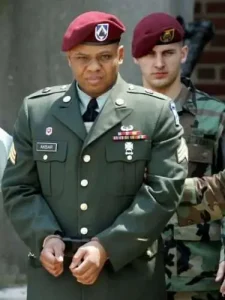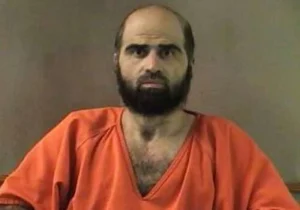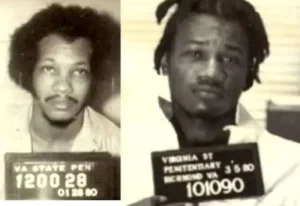Stephen Paddock was a spree killer who was responsible for the Las Vegas shooting in 2017 that would take the lives of sixty people and injured hundreds more. The Las Vegas shooting is the worst mass shooting event in United States history
According to police reports Stephen Paddock would barricade himself in Room 32‑135, at the Mandalay Bay Hotel and Casino. Somehow Paddock was able to bring in a large arsenal of weapons without being noticed by hotel staff
On October 1 2017 a large concert was taking place outside of the Mandalay Bay Hotel and Casino with an estimated 20,000 people attending. At a little after ten o’clock pm Stephen Paddock would being to fire and would continue for the next ten minutes leading to sixty people dying from their injuries and over four hundred others suffering from gunshot wounds and additional four hundred people suffering from injuries when people were rushing to safety
Before police could go into the room Stephen Paddock would take his own life
The reasons behind the mass shooting is still not known some six years later with a ton of speculation and conspiracy theories afloat
Stephen Paddock Photos

Stephen Paddock Videos
Stephen Paddock Case
The gunman who killed 58 people in Las Vegas in 2017 was not fueled by any “single or clear motivating factor,” the FBI said, mirroring the conclusions of local police who said they could not determine what motivated the massacre.
The FBI findings made public Tuesday come more than a year after the Oct. 1, 2017, massacre at a country music festival on the Las Vegas Strip. According to police, gunman Stephen Paddock opened fire from a 32nd-floor suite at the Mandalay Bay Resort and Casino, killing dozens and injuring hundreds more before shooting himself in the head.
After the massacre — the deadliest mass shooting in modern U.S. history — investigators delved into Paddock’s life before the gunfire. They pored over his finances, spoke to people who knew him and studied his movements. In the end, the Las Vegas police said in a report last summer, these investigators said they could not answer why he carried out the attack.
The question of motive often lingers after mass shootings, as some of the people victimized by the attacks describe a desperate search for answers.
The FBI’s Behavioral Analysis Unit brought together a panel of experts to examine the attacker and try to look at his possible motivations, the bureau said. The FBI released a three-page summary of the panel’s findings Tuesday, but much as local police came away without clarity, the federal investigators’ conclusions were no different.
“Throughout his life, Paddock went to great lengths to keep his thoughts private, and that extended to his final thinking about this mass murder,” the FBI said in its summary of the findings. Noting that most shooters “rarely have a singular motive or reason for engaging in a mass homicide” and instead have a tangled knot of problems that merge together, the panel “assesses that in this regard, Paddock was no different.”
The FBI panel also echoed other findings investigators have previously announced. They found that Paddock “conspired with no one; he acted alone” and was not seeking any political, religious or social outcome through his attack. No “ideologically-motivated persons or groups” directed or inspired him, the FBI said, another rebuke to the Islamic State’s attempts to link itself to the attack.
The federal panel also echoed the determination that Paddock left behind no explanatory note or other communication explaining either the attack or his motivation. They found no specific grievance against a Las Vegas casino or any of his victims that may have prompted the attack.
The Las Vegas attack was horrifying in its scale. Police said 869 people were injured, nearly half of them by gunfire or shrapnel, along with countless others in the crowd of 22,000 who carry psychological scars.
But the FBI group did determine that Paddock’s desire to kill himself was a key part of what happened, which the panel concluded was linked to his declining health as he got older. The panel found that “Paddock concluded that he would seek to control the ending of his life via a suicidal act,” a desire that was furthered by his hope to achieve some infamy through the attack. This facet echoes that seen by some other mass attackers, who similarly seek fame, but the Las Vegas panel linked this to Paddock’s father, a bank robber who was on the FBI’s Most Wanted list.
The FBI panel found that Paddock was similar to many other mass attackers, who have frequently concerned the people around them before the attacks. The panel also found that Paddock could be cruel to other people in his life, which it said included manipulating others. Authorities have previously said he spent considerable time preparing for the attack while seeking to thwart their investigation. In its conclusions, the FBI panel said that this probably gave Paddock “a sense of direction and control despite his mental and physical decline.”
Police have previously said an FBI analysis found that Stephen Paddock’s bank accounts were also declining before the shooting. The Las Vegas sheriff called him “an unremarkable man” and “a narcissist [who] only cared about himself,” a conclusion the FBI panel appeared to endorse.
